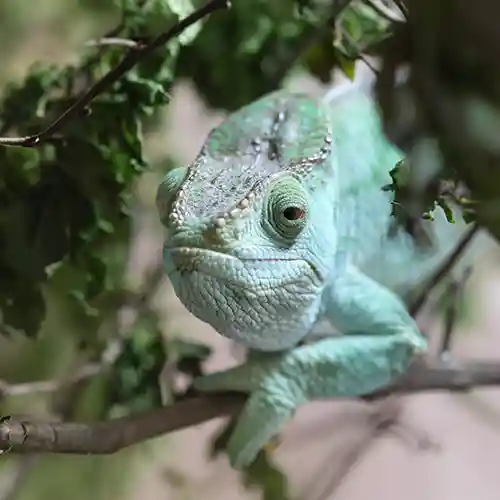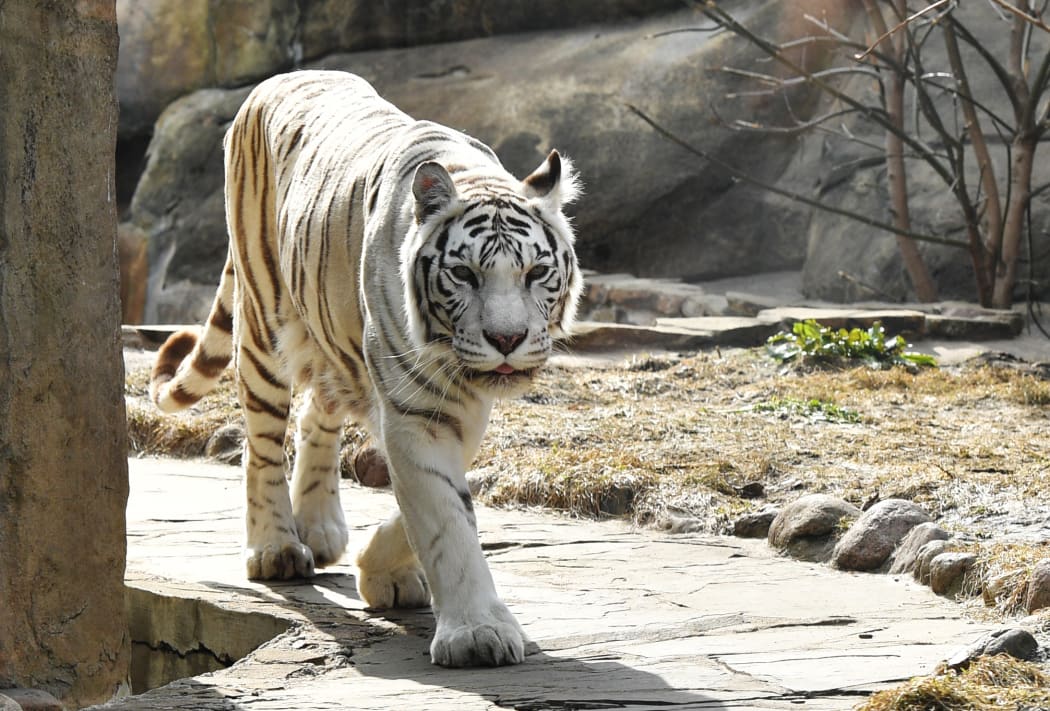How To Become A Zoo Keeper?
페이지 정보

본문

"The achievement of a country and its ethical progress can be judged by the way its animals are dealt with." - Mahatma Gandhi

Do you enjoy animals and dream of operating in a zoo? Zoo keepers are type in safeguarding wildlife and taking care of animals. At places like the Zoological Society of London (ZSL), over 20,000 animals get the care they require from specialists.
To become a zoo keeper, you need hard work, education, and a love for animals. This job is amazing, zookeeper letting you work with many species and assist with essential conservation work. If you're into wildlife or animal welfare, zookeeping might be perfect for you.
Starting your zoo keeper profession means discovering what's needed. This guide will cover education, experience, and more. It's all you need to understand to begin a fulfilling zookeeping profession.
Understanding the Role of a Zookeeper
Exploring what a zookeeper does exposes a role filled with difficulties and rewards. They concentrate on animal welfare and preservation. Zookeepers work hard to keep animals healthy and pleased in their care.
Daily Responsibilities and Tasks
A zookeeper's day is filled with important tasks:

- Preparing meals that fulfill each animal's dietary requirements
- Cleaning enclosures to keep them tidy and safe
- Supervising animal health and zookeeper behaviour
- Offering medications and treatments as needed
- Developing activities to keep animals psychologically sharp
Workplace and Conditions
Zookeepers work outside in all kinds of weather condition. They handle both indoor and outside areas. The task requires being fit and able to manage the demands of caring for animals.
"Being a zookeeper is more than a job - it's an enthusiastic dedication to animal care and conservation."
Types of Animals and Specialisations
Zookeepers can specialise in many animal groups:
- Primates
- Big cats
- Marine mammals
- Reptiles
- Birds
Your function may include working with 2-5 various animal types. This needs a lot of understanding and the ability to adjust.
Vital Skills and Personal Qualities for Zoo Keeping
To be a top zookeeper, you require more than just a love for animals. Your job will be difficult and require you to manage animals and people well. You'll likewise require to comprehend animal behaviour.
What zoos search for in people consists of:
- Exceptional persistence and psychological strength
- Strong fitness and stamina
- Keen observation abilities
- Ability to stay calm under pressure
- High level of empathy towards animals
Getting hands-on experience is essential to mastering this role. You'll require to reveal:
- Advanced understanding of animal care strategies
- Proficiency in animal handling and security protocols
- Effective communication with both animals and human visitors
"A fantastic zookeeper connects science, empathy, and preservation in every interaction with animals."
You should learn about animal nutrition, behaviour, and fundamental veterinarian care. The majority of zookeepers learn through training, volunteering, and ongoing learning.
Zookeeper work is not just a job. It's a huge commitment to teaching about wildlife and assisting preservation. Your passion and effort will make you stand out in this satisfying profession.
How to Become a Zoo Keeper
Beginning a career as a zookeeper needs cautious preparation and education. You should first comprehend the educational requirements and training courses. These will turn your love for animals into a job.
Educational Requirements
To be a fantastic zookeeper, you require a strong academic base. Most tasks look for certain certifications:
- At least 5 GCSEs at grade 4 or above, consisting of English, maths, and science
- A levels or college certifications
- A college degree in biology or animal science
- Level 3 Diploma in Animal Management
Necessary Certifications
Getting unique certifications can actually help you in your zookeeper profession. Important ones include:
- Diploma in Management of Zoo and Aquarium Animals (DMZAA)
- Zookeeping Level 3 Diploma (RQF)
- Animal dealing with certificates
- First aid certifications
Training Programs and Apprenticeships
Getting hands-on experience is key in zookeeper training. Lots of locations provide terrific chances:
- Unpaid apprenticeships at wildlife parks
- Internship programs at widely known zoos
- Practical training at places like Colchester Zoo and Dartmoor Zoo
- Volunteering to gain real-world skills
Pro suggestion: Create an in-depth portfolio to reveal your animal care abilities. It will help you in task applications.
Structure Relevant Experience in Animal Care
Acquiring hands-on experience is crucial for those wanting to be zookeepers. The task is really competitive. So, it's important to start developing a strong base in animal care.
Your journey starts with discovering methods to work directly with animals. This is a strategic action.
"Experience is the very best teacher in animal care" - Wildlife Conservation Experts
Here are effective ways to acquire experience working with animals:
- Volunteer at local animal shelters to develop basic animal handling skills
- Seek internships at wildlife rehab centres
- Check out part-time positions at veterinary centers
- Contact your local zoo for possible volunteer opportunities
Volunteering is a fantastic way to discover animal behaviour and care. Many zoos and zookeeper animal shelters are trying to find individuals who want to discover. These locations provide fantastic opportunities to get hands-on experience and show your dedication to animal welfare.
Here are some ideas to make the most of your experience:
- Keep a record of your skills and interactions
- Connect with experts in animal care
- Request for referrals and letters of recommendation
- Stay consistent and show your true enthusiasm
Remember, practical experience makes you stick out in the zookeeping world. Every time you work with animals, you find out more. This increases your opportunities of getting a job in animal care.
Career Pathways and Professional Development
Starting a profession as a zookeeper is amazing. It provides numerous opportunities to grow and specialise. Your journey begins with understanding the various courses in this field.
Entry-Level Positions
Entry-level tasks in zookeeping are a fantastic start. They offer you hands-on experience. Zoos look for candidates with:
- Level 2 Diploma in Animal Care (minimum certification)
- GCSEs in English and a clinical subject
- Volunteer experience at animal shelters or farms
Career Progression Opportunities
As you gain experience, your career can grow. You can move up to:

- Junior Keeper
- Senior Keeper
- Team Leader
- Specialist Roles
"Continuous learning and useful experience are essential to advancing in your zookeeping career."
Specialised Roles
You can likewise choose special locations like:
- Conservation reproducing programs
- Animal training
- Wildlife research study
- Educational outreach
About 25% of zookeepers get advanced degrees in zoology or animal conservation. Getting Level 4 certifications can increase your chances for senior roles and zookeeper research.
Working Hours and Physical Demands
Ending up being a zookeeper indicates you'll work more than simply regular hours. You'll face hard physical challenges and require to be versatile, consisting of weekends and holidays. Zoos are open every day, so you'll often work when others relax.
"Zoo keeping is not a normal 9-to-5 job-- it's a way of life of devoted animal care and commitment."
This job is physically demanding. You'll work outside in any weather condition, lifting heavy items over 50 pounds. Your tasks might consist of:
- Early morning feeding schedules
- Cleaning animal enclosures
- Preparing specialised diets
- Conducting health checks
- Maintaining complex environments
Shifts can start as early as 5 AM and go late into the night. You'll be on your feet most of the time, moving in between animal zones. Weekends and holidays belong to the job, requiring great deals of endurance and devotion.
Regardless of the challenges, this task has terrific rewards. You'll grow strong, both physically and mentally. You'll likewise make remarkable connections with unbelievable animals.
Health and Safety Considerations
Being a zookeeper comes with its own set of obstacles. It's important to know how to keep both animals and personnel safe. This implies following stringent health and wellness rules.
Zookeepers deal with an unique environment where security is key. Studies show that health and safety are now as crucial as the zoo's main work.
Threat Management Strategies
There are numerous ways to handle risks in zoos:
- Daily checks of animal enclosures for dangers
- Counting animals at the start and end of shifts
- Watching how visitors act near animals
- Being ready for emergencies
Animal Handling Safety Protocols
Understanding which animals are most harmful is essential. Huge animals like rhinos can be really dangerous. There have been cases where zookeepers got seriously hurt.
Safety isn't almost - it's about knowing animal behaviour and staying alert.
Personal Protective Equipment
Zookeepers need to wear the right equipment, consisting of:
- Special gloves for dealing with animals
- Strong shoes for grip and security
- Clothes that secures against bacteria
Getting immunized against illness like hepatitis B and rabies is likewise crucial. It assists keep zookeepers healthy in their tough job.
Salary Expectations and Job Market
Considering a career in zoo keeping? It's essential to learn about salaries and the job market. The field is growing, with more opportunities in the UK.
Let's look at what zoo keepers can earn at various stages:
- Entry-level zookeepers start at about ₤ 14,000 a year
- Certified ones make between ₤ 16,000 and ₤ 22,000
- Senior zookeepers can make as much as ₤ 30,000 or more
The job outlook for zoo keepers is good. The sector is expected to grow by 5% in the UK by 2029. This means around 3,910 new tasks will be readily available.
"The Association of Zoos and Aquariums supports expert growth for zoo keepers," a report says.
Wages differ based upon numerous things:
- Experience level
- Expertise
- Where you work
- The zoo's size and type
While the pay might not be high, the pleasure of working with animals is valuable. The average income is around ₤ 17,000. However, overall revenues can be in between ₤ 13,000 and ₤ 27,000 a year.
Conclusion
Beginning a career in animal care is an interesting journey. It requires devotion, enthusiasm, and a love for learning. With over 350 zoos and wildlife locations in the UK, there are many job chances. You'll get to deal with incredible animals and help safeguard wildlife.
To be a zoo keeper, you need more than just love for animals. You must have a mutual understanding of biology, have the ability to communicate well, and constantly wish to learn more. You'll gain hands-on experience, learn about animal welfare, zookeeper and develop a deep regard for nature. About 3,000 individuals in the UK have actually found fulfilling careers in this field.
Your success in zoo keeping comes from blending science with a love for animals. Whether you're interested in mammals, birds, or marine life, this job lets you help with conservation. Every day will bring brand-new difficulties and learning chances that will improve your skills and knowledge.
If you love animals and wish to assist safeguard wildlife, zoo keeping might be for you. Handle the challenge, remain curious, and turn your passion for animals into a fulfilling profession.
- 이전글Погрузитесь в волшебный мир гама казино! 25.02.06
- 다음글15 Hot Trends Coming Soon About Mystery Box 25.02.06
댓글목록
등록된 댓글이 없습니다.

